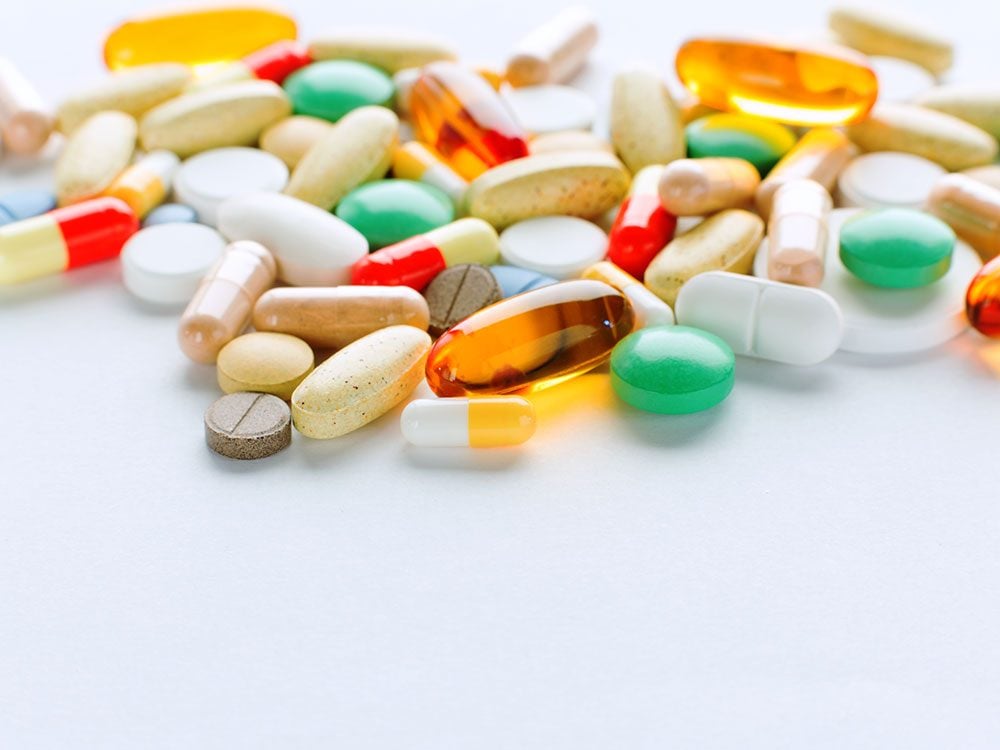
How well do you know these essential vitamins?
The 13 essential vitamins your body needs are vitamins A, C, D, E, K and the B vitamins: thiamine (B1), riboflavin (B2), niacin (B3), pantothenic acid (B5), pyroxidine (B6), biotin (B7), folate (B9) and cobalamin (B12).
The four fat-soluble vitamins—A, D, E, and K—are stored in the body’s fatty tissues. The other nine vitamins are water-soluble and therefore must be replenished regularly because they are removed from the body in your urine. Vitamin B12 is the only water-soluble vitamin that is stored in the liver.
The best way to get enough of the 13 essential vitamins is to eat a balanced diet from a variety of foods. (This MIND Diet meal plan is a great place to start.) Here is a guide to why you need each essential vitamin—and the best food sources from which to obtain them.

Vitamin A
Vitamin A plays an important role in growth and cell development. It also promotes healthy skin, hair, nails, gums, glands, bones and teeth; prevents night blindness and may help prevent lung cancer.
Where to get Vitamin A: Salmon, other cold-water fish, egg yolks, fortified dairy products.
This is the healthiest fish you can eat.
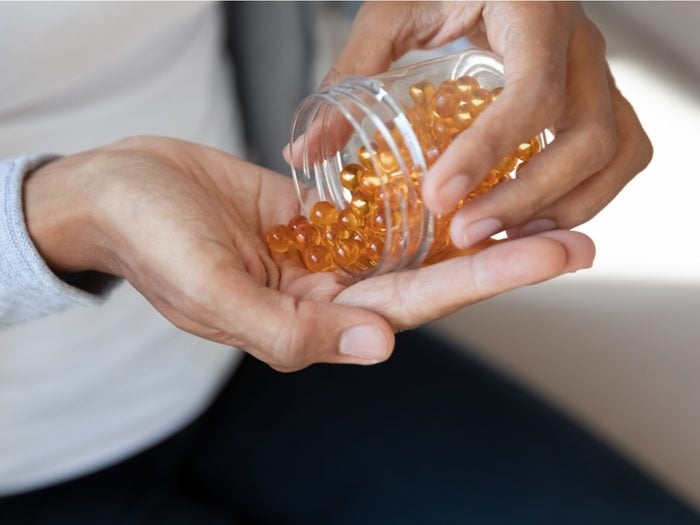
Vitamin D
As an essential vitamin, vitamin D aids calcium absorption, and builds and maintains strong bones and teeth.
Where to get Vitamin D: Fortified milk, fortified soy/rice beverages, butter, egg yolks, fatty fish, fish-liver oil; made by the body when exposed to the sun.
Learn to spot the signs you’re not getting enough vitamin D.
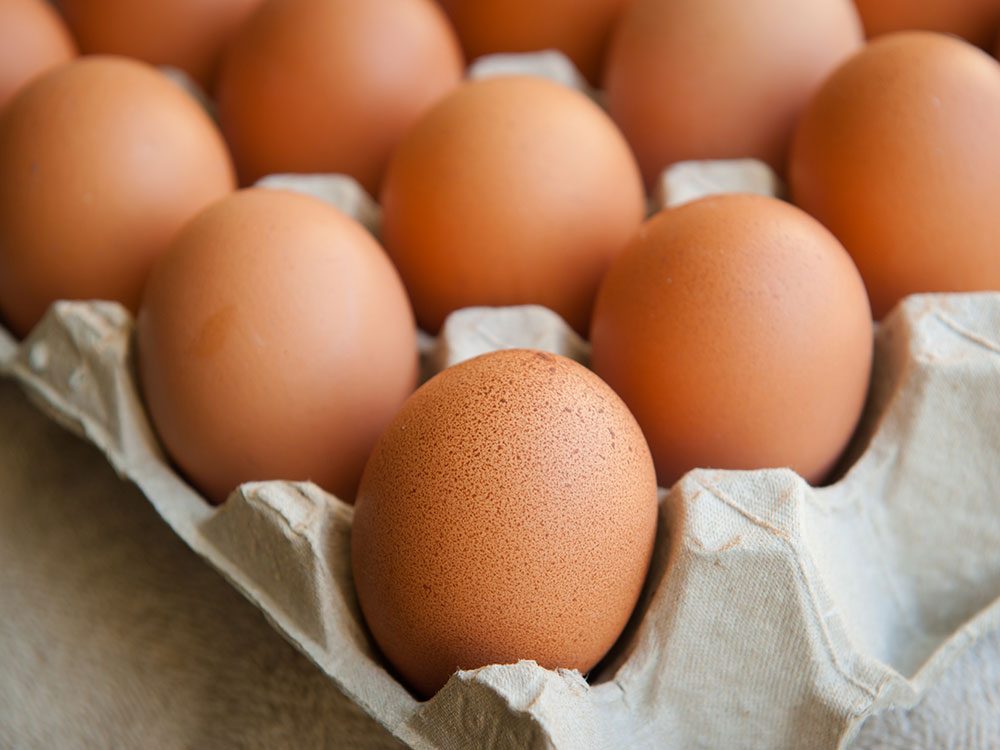
Vitamin E
Vitamin E protects fatty acids; maintains muscles and red blood cells; and serves as an important antioxidant.
Where to get Vitamin E: Eggs, vegetable oils, margarine, mayonnaise; nuts, seeds, fortified cereals.
Here are 20 high-antioxidant foods worth adding to your cart.
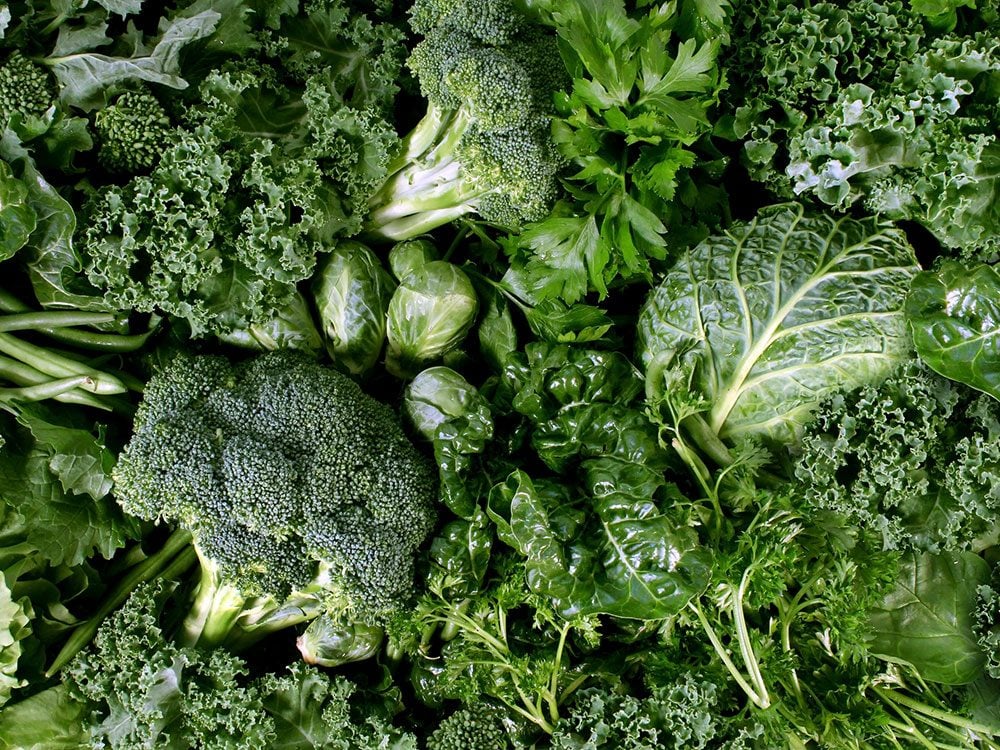
Vitamin K
Vitamin K is an essential vitamin for your body. Your body needs it for proper blood clotting.
Where to get Vitamin K: Spinach, broccoli, green leafy vegetables, liver.
Here are the foods everyone over 50 should be eating.
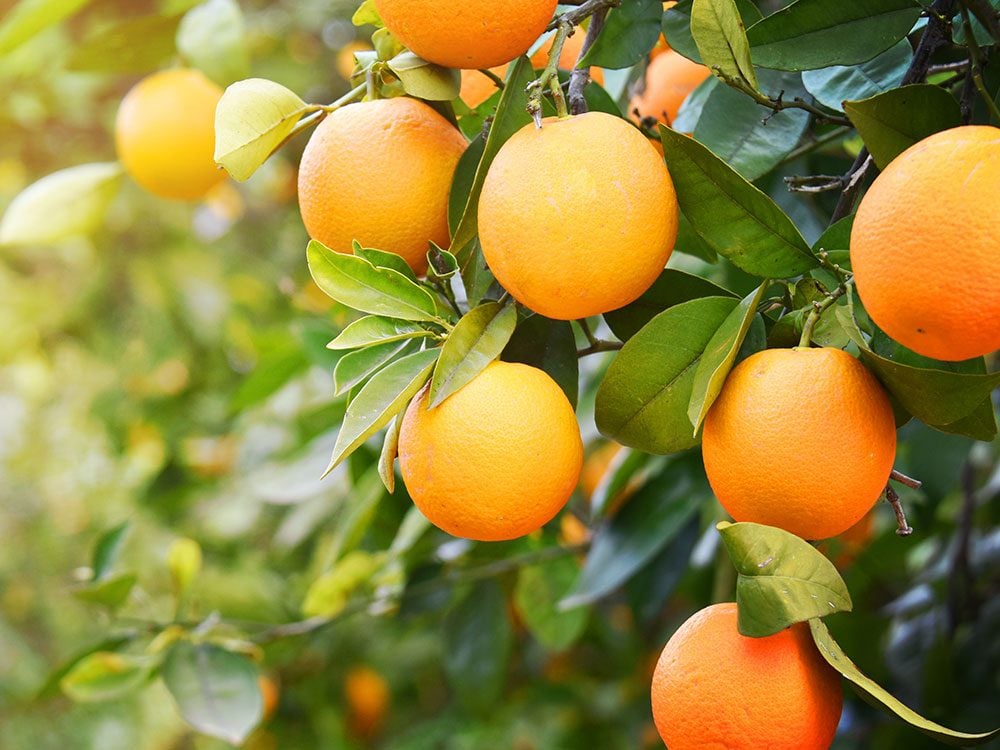
Vitamin C (Ascorbic Acid)
Vitamin C, found in citrus fruits, is an essential vitamin and important for your body.
Why you need Vitamin C: Strengthens blood vessel walls; promotes wound healing and iron absorption; helps prevent atherosclerosis; supports immunity; serves as a key antioxidant.
Where to get Vitamin C: Citrus fruits, juices, melons, berries, peppers, broccoli, potatoes.
Discover eight science-backed ways to boost your immune system.

Thiamine (Vitamin B1)
Vitamin B1 is important for maintaining a healthy metabolism. It also helps maintain normal digestion, appetite and proper nerve function.
Where to get Vitamin B1: Pork, legumes, nuts, seeds, fortified cereals, grains.
Discover the best foods to boost your metabolism.
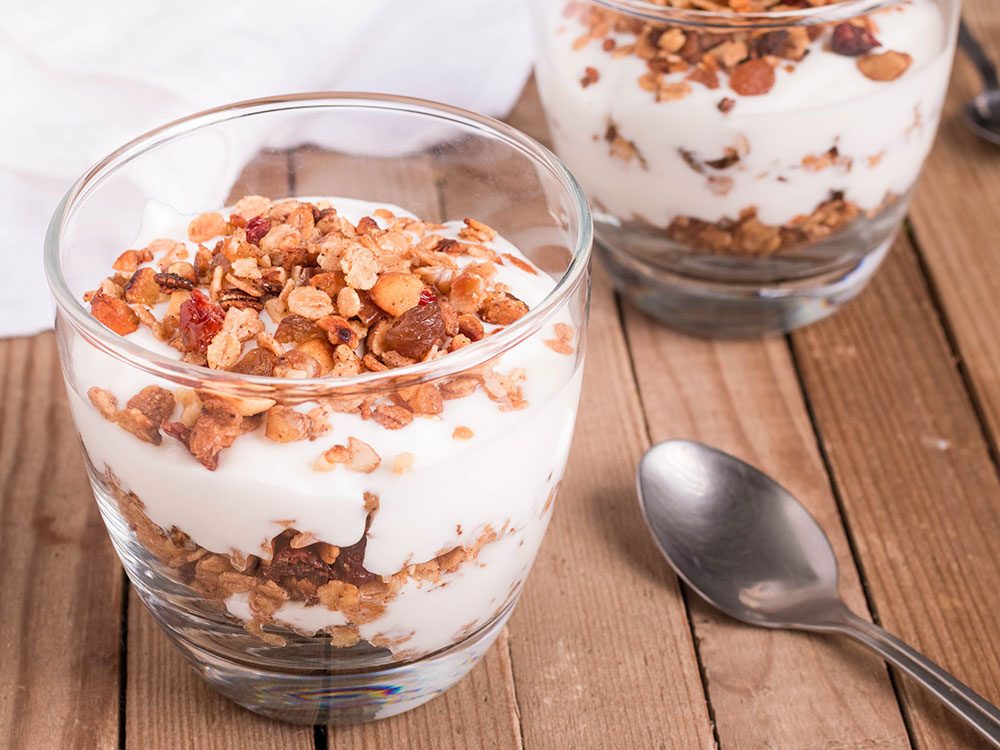
Riboflavin (Vitamin B2)
Vitamin B2 is essential for energy metabolism. It also aids adrenal function, supports normal vision and helps maintain healthy skin.
Where to get Vitamin B2: Fortified cereals, grains, lean meat, poultry, dairy products, fortified soy/rice beverages, raw mushrooms.
Here are the best foods for healthy skin that glows.
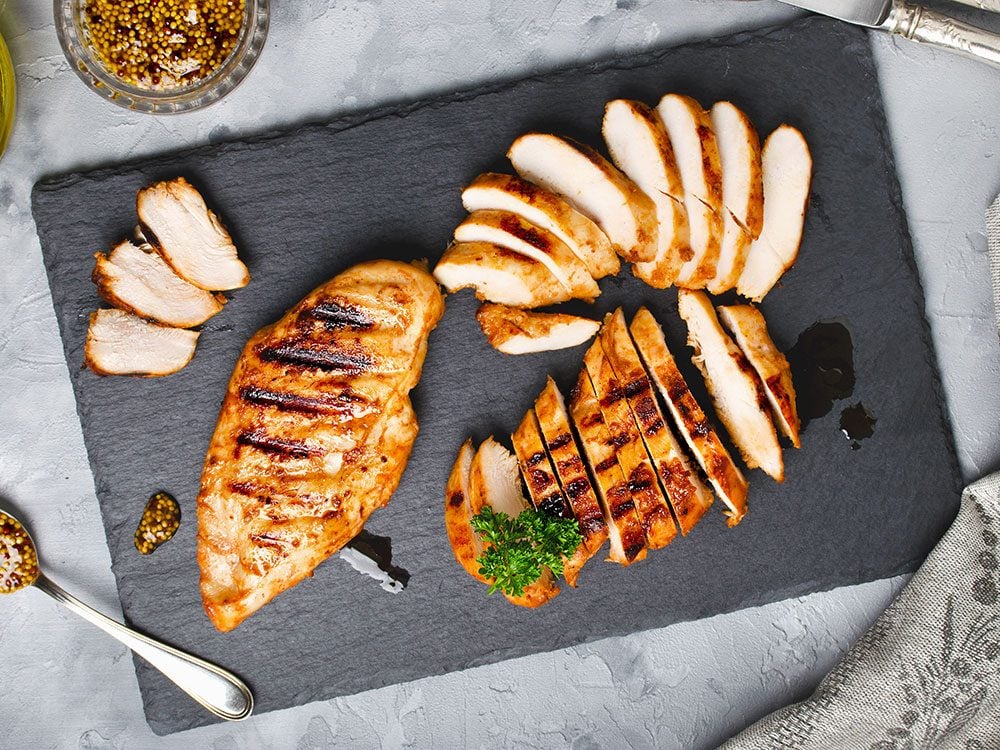
Niacin (Vitamin B3)
Vitamin B3 is important for the body. It’s used to metabolize energy and promote normal growth. In large doses, Vitamin B3 can also lower cholesterol.
Where to get Vitamin B: Lean meats, poultry, seafood, milk, eggs, legumes, fortified breads, cereals.
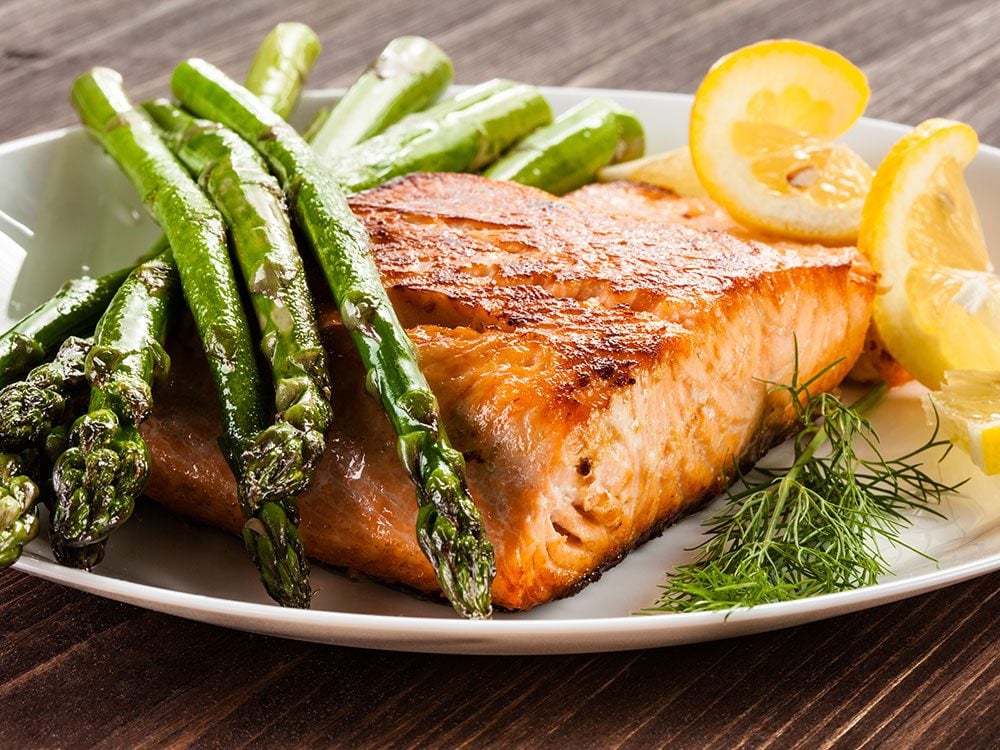
Pantothenic Acid (Vitamin B5)
Although it’s one of the essential vitamins, vitamin B5 is relatively easy to come by.
Why you need Vitamin B5: Aids energy metabolism and normalizes blood sugar levels.
Where to get it: Almost all foods contain Vitamin B5.
These are the best sources of protein, according to Canada’s Food Guide.
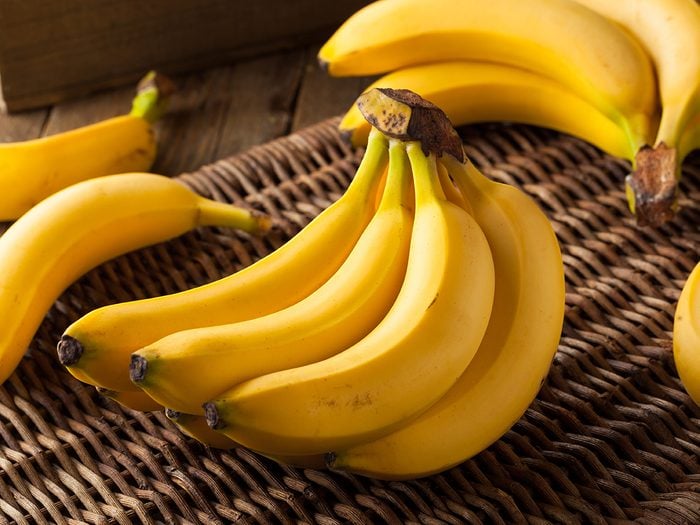
Pyridoxine (Vitamin B6)
Vitamin B6 is an essential vitamin for good health. It promotes protein metabolism, metabolism of carbohydrates and the release of energy. It also plays a role in proper nerve function and the synthesis of red blood cells.
Where to get Vitamin B6: Meat, fish, poultry, grains, cereals, bananas, green leafy vegetables, potatoes, soybeans.
Find out the healthiest fruits you can buy.
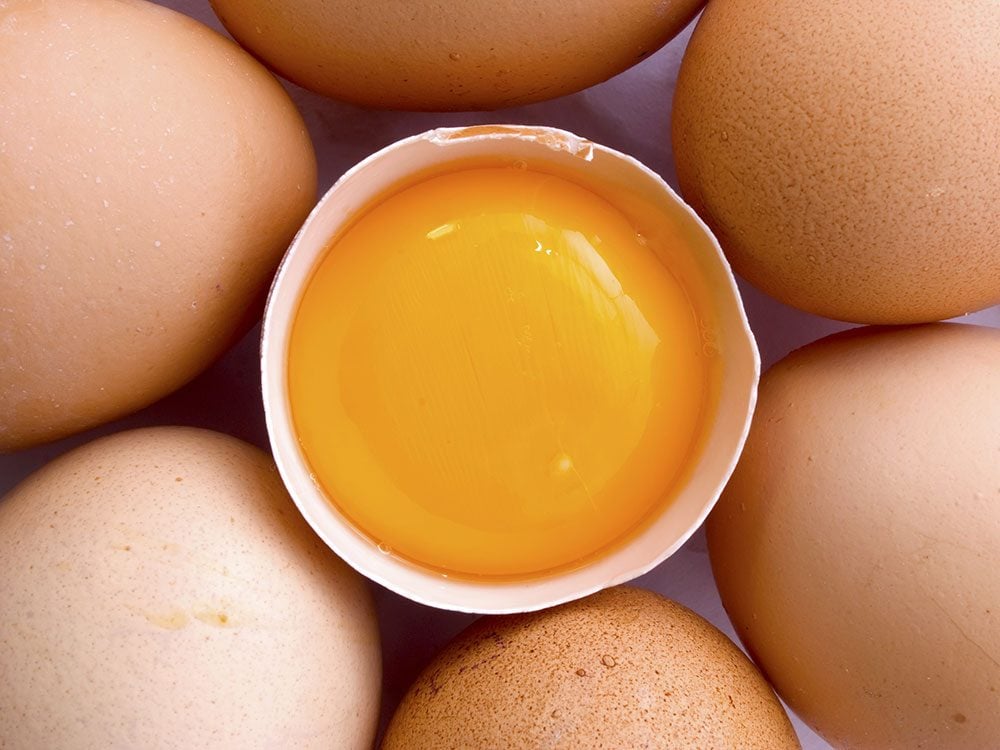
Biotin (Vitamin B7)
Vitamin B7 (also known as biotin) is an essential vitamin that plays an important role in maintaining a healthy metabolism.
Where to get Vitamin B7: Egg yolks, soybeans, whole grains, nuts, yeast.
Here are 12 high-fibre foods you should be eating more often.
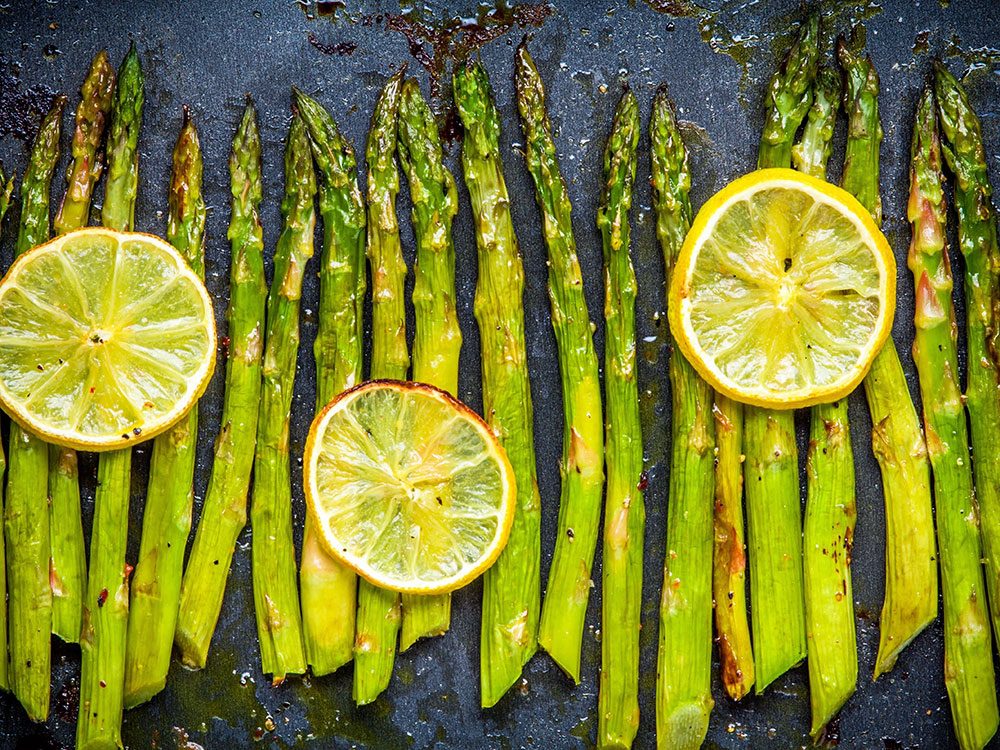
Folate, Folic Acid (Vitamin B9)
Vitamin B9 is an essential vitamin, and is especially important for pregnant women.
Why you need Vitamin B9: To make DNA, RNA, red blood cells, and synthesize certain amino acids. Vitamin B9 is also important for pregnant women, as it helps prevent birth defects.
Where to get Vitamin B9: Liver, yeast, leafy green vegetables, asparagus, orange juice, fortified flour, avocados; legumes.
Don’t miss our ultimate guide to healthy grocery shopping.
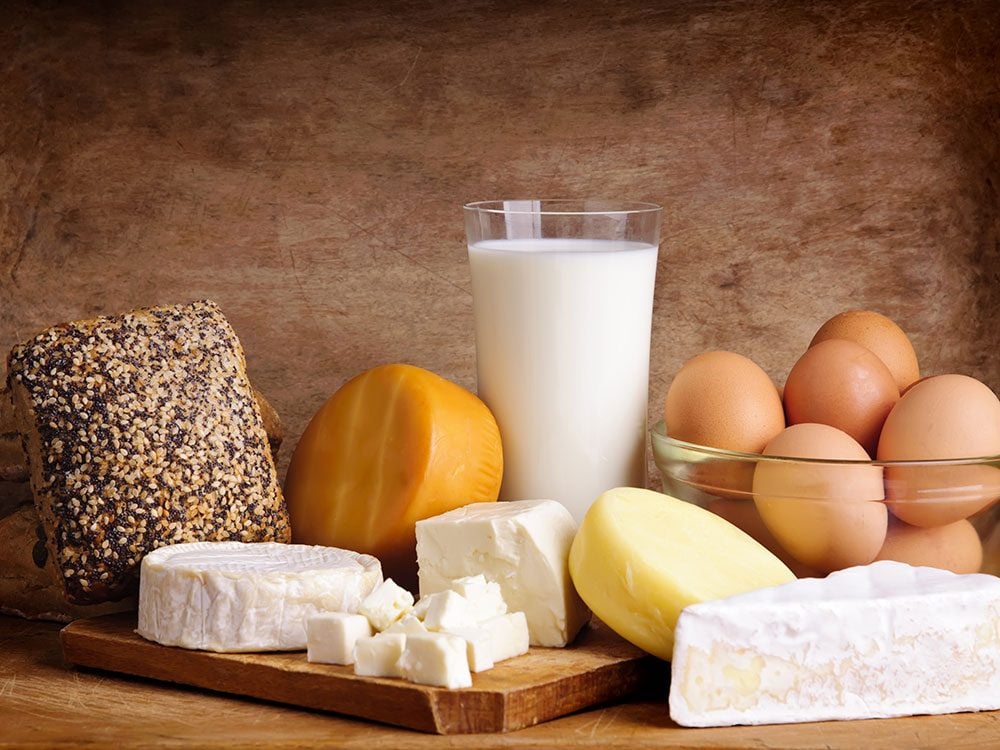
Cobalamin (Vitamin B12)
Why you need Vitamin B12: To make red blood cells, DNA, RNA, and myelin for nerve fibres.
Where to get Vitamin B12: All animal products.
Next, learn to spot the signs you’re not getting enough vitamins.